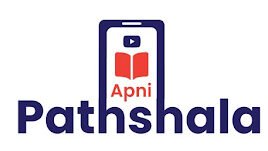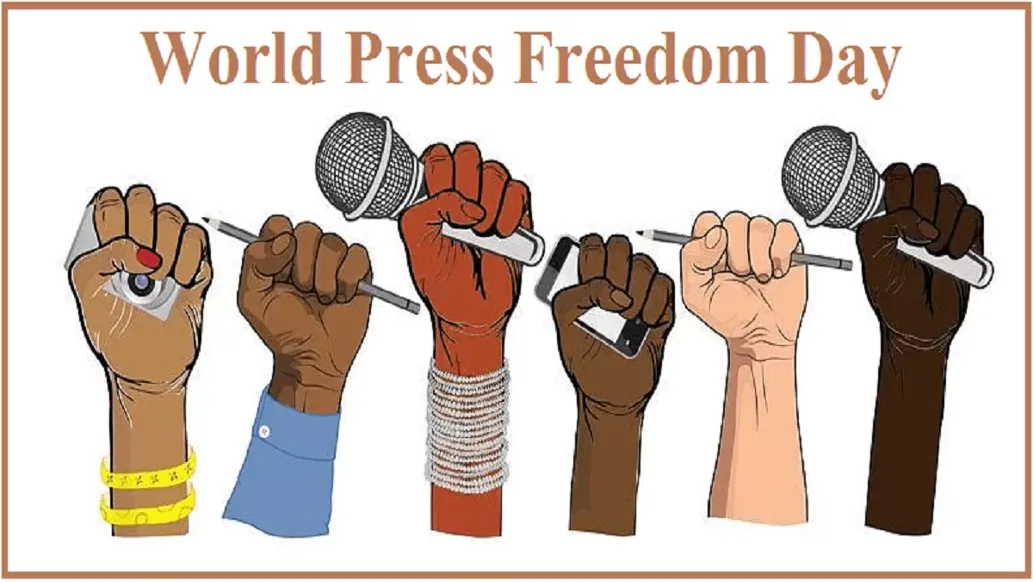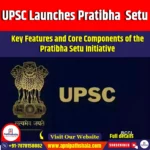What’s in this Article?
- Table of Contents
- Why in the News
- World Press Freedom Day – Origin
- Windhoek Declaration
- Significance of World Press Freedom Day
- World Press Freedom Day 2024
- UNESCO/Guillermo Cano World Press Freedom Prize
- What is the World Press Freedom Index?
- About the Freedom of Press in India
- What is the role of Press Council of India?
Why in the News
- UNESCO and Chile will host the annual World Press Freedom Day Global Conference from May 2–4, It will focus on the digital era’s impact on freedom of expression, access to information and privacy, the safety of journalists, etc. To address these challenges, some concrete recommendations will also be developed.
- The day will reunite the relevant stakeholders, including policymakers, journalists, media representatives, activists, cybersecurity managers, and legal experts, to explore these issues and develop concrete solutions so that the threats posed by increased surveillance to press freedom and privacy can be addressed.
World Press Freedom Day – Origin
- In December 1993, the UN General Assembly proclaimed World Press Freedom Day.
- This decision was taken after the recommendations given by the UNESCO’s General Conference in 1991.
- 3rd May was chosen as the day to celebrate World Press Freedom Day to mark the anniversary of the Declaration of Windhoek.
- To raise public awareness of the value of press freedom, the importance of protecting journalists’ rights, and the importance of encouraging independent, free media.
Windhoek Declaration
- The Declaration of Windhoek is a statement of free press principles as put together by newspaper journalists in Africa during a UNESCO seminar on “Promoting an Independent and Pluralistic African Press” in Windhoek, Namibia, from April 29 to May 3,
- The 1991 Windhoek Declaration was the subject of a resolution at the 26th session of the UNESCO General Conference, and in 1993, the 48th UNGA session proclaimed May 3 as World Press Freedom Day.
- The 1991 Windhoek Declaration has acted as a benchmark and catalyst for advancing press freedom around the world.
- This Declaration remains more relevant than ever as the freedom of the press and the safety of journalists are increasingly under attack worldwide and new challenges are threatening the freedom to inform and to be informed, both online and offline.
- It inspired regional declarations, raised professional and ethical standards in journalism, paved the way for organisations defending press freedom to flourish, and promoted media legislation reforms and the development of a free, independent and pluralistic media.
Significance of World Press Freedom Day
- World Press Freedom Day is used as an opportunity to reflect on the professional ethics of journalists.
- World Press Freedom Day is also used as an opportunity to remind the Governments about their need to remain committed to the goal of press freedom and celebrate the fundamental principles of press freedom.
- Every year, on 3rd May, tributes are paid to journalists who lost their lives while carrying out their duty, and the media is defended from attacks on their independence.
- It is an opportunity to:
- Celebrate the fundamental principles of press freedom.
- Assess the state of press freedom throughout the world.
- Defend the media from attacks on their independence.
- Pay tribute to journalists who have lost their lives in the line of duty.
World Press Freedom Day 2024
- This year, World Press Freedom Day is dedicated to the importance of journalism and freedom of expression in the context of the current global environmental crisis.
- This year’s theme is: ‘A Press for the Planet: Journalism in the face of the Environmental Crisis’.
- Environmental journalists are often the chroniclers of the triple planetary crisis of climate change, nature and biodiversity loss, and pollution and waste. Many reports on hidden issues such as illegal logging and the theft of freshwater.
- In recent years, a growing number of environmental journalists have faced harassment, assault and even murder. Research suggests that more than dozens of environmental journalists were killed in the past two decades, making it the most dangerous journalism field after war reporting.
- According to the environmental group Global Witness, 1,910 land and environmental defenders were killed between 2012 and
- Misleading and false information about climate change can, in some cases, foster doubt and incredulity about environmental issues, their impact and urgency, and undermine international efforts to address them.
- Misinformation about environmental issues can lead to a lack of public and political support for climate action, effective policies, and the protection of vulnerable communities affected by climate change, as well as of women and girls, as climate change tends to exacerbate existing inequalities.
UNESCO/Guillermo Cano World Press Freedom Prize
- UNESCO marks World Press Freedom Day by conferring the UNESCO/Guillermo Cano World Press Freedom Prize on deserving institutions, organisations or individuals who have made exemplary contributions to the promotion or defence of press freedom in any part of the globe.
- Guillermo Cano was a journalist from Colombia, who was assassinated in front of his office.
- The World Press Freedom Prize will be given after the recommendation of an independent jury of 14 news professionals.
What is the World Press Freedom Index?
- It has been published every year since 2002 by Reporters Without Borders or Reporters Sans Frontieres (RSF).
- RSF is an independent NGO based in Paris that has consultative status with the United Nations, UNESCO, the Council of Europe, and the International Organisation of the Francophonie (OIF).
- OIF is a 54 french speaking nations collective.
- The report ranks 180 countries based on their level of press freedom, taking into account factors such as censorship, media independence, and the safety of journalists. However, it is not an indicator on the quality of journalism.
- Scoring Criteria:
- The Index’s rankings are based on a score ranging from 0 to 100 that is assigned to each country or territory, with 100 being the best possible score (the highest possible level of press freedom) and 0 the worst.
- Evaluation Criteria:
- Each country or territory’s score is evaluated using five contextual indicators: political context, legal framework, economic context, sociocultural context and safety.
About the Freedom of Press in India
- The Constitution, the supreme law of the land, guarantees freedom of speech and expression under Article 19, which deals with ‘Protection of certain rights regarding freedom of speech, etc.
- Freedom of press is not expressly protected by the Indian legal system but it is impliedly protected under article 19(1) (a) of the constitution, which states – “All citizens shall have the right to freedom of speech and expression”.
- In 1950, the Supreme Court in Romesh Thappar v. State of Madras observed that freedom of the press lay at the foundation of all democratic organisations.
- However, Freedom of press is also not absolute. It faces certain restrictions under Article 19(2), which are as follows-
- Matters related to interests of the sovereignty and integrity of India, the security of the State, friendly relations with foreign States, public order, decency or morality or in relation to contempt of court, defamation or incitement to an offence.
What is the role of Press Council of India?
- The Press Council of India is a statutory, quasi-judicial, autonomous authority.
- It was first constituted on July 4,
- A fresh legislation providing for the establishment of the Council was enacted in
- The Press Council of India was reestablished in 1979 under an Act of Parliament, Press Council Act, 1978 with the objectives of preserving the freedom of the press by maintaining and improving the standards of newspapers and the news agencies in India.
- The Council consists of a chairman and twenty-eight other members.
- The chairman is, by convention, a retired judge of the Supreme Court of India who is nominated by a committee consisting of Chairman of the Council of States (Rajya Sabha), Speaker of the House of the People (Lok Sabha) and a person elected from amongst themselves by the members of the Council.
- Of the 28 members, 20 represents a specially identified segment of press and eight members from varied fields representing the two Houses of the Parliament and premier literacy and legal bodies like University Grants Commission, Bar Council of India and Sahitya Akademi.
- The term of the office of the chairman and the members is three years.
- The Council discharges its functions primarily through adjudications on complaints received by it, either against the Press for violation of journalistic ethics or by the Press for interference with its freedom.
- National Press Day is observed in India on November
Q. Right to Privacy is protected as an intrinsic part of Right to Life and Personal Liberty. Which of the following in the Constitution of India correctly and appropriately imply the above statement? (2018)
(a) Article 14 and the provisions under the 42nd Amendment to the Constitution.
(b) Article 17 and the Directive Principles of State Policy in Part IV.
(c) Article 21 and the freedoms guaranteed in Part III.
(d) Article 24 and the provisions under the 44th Amendment to the Constitution.
Ans: (c) Article 21 and the freedoms guaranteed in Part III.
Q. The first newspaper published in India was
(a) The Hindu
(b) The Amrita Bazar Patrika
(c) The Bengal Gazette
(d) The Samachar Darpan
Ans: (c) The Bengal Gazette
Q. With reference to the Indian Press Act, 1910 which of the following statements is correct?
(a) It was enacted to repeal the Vernacular Press Act.
(b) It imposed strict censorship on both vernacular and english publications.
(c) It was based on the recommendations of a committee led by Motilal Nehru.
(d) None of the above
Ans: (b) It imposed strict censorship on both vernacular and english publications.
Disclaimer: The article may contain information pertaining to prior academic years; for further information, visit the exam’s “official or concerned website“.








